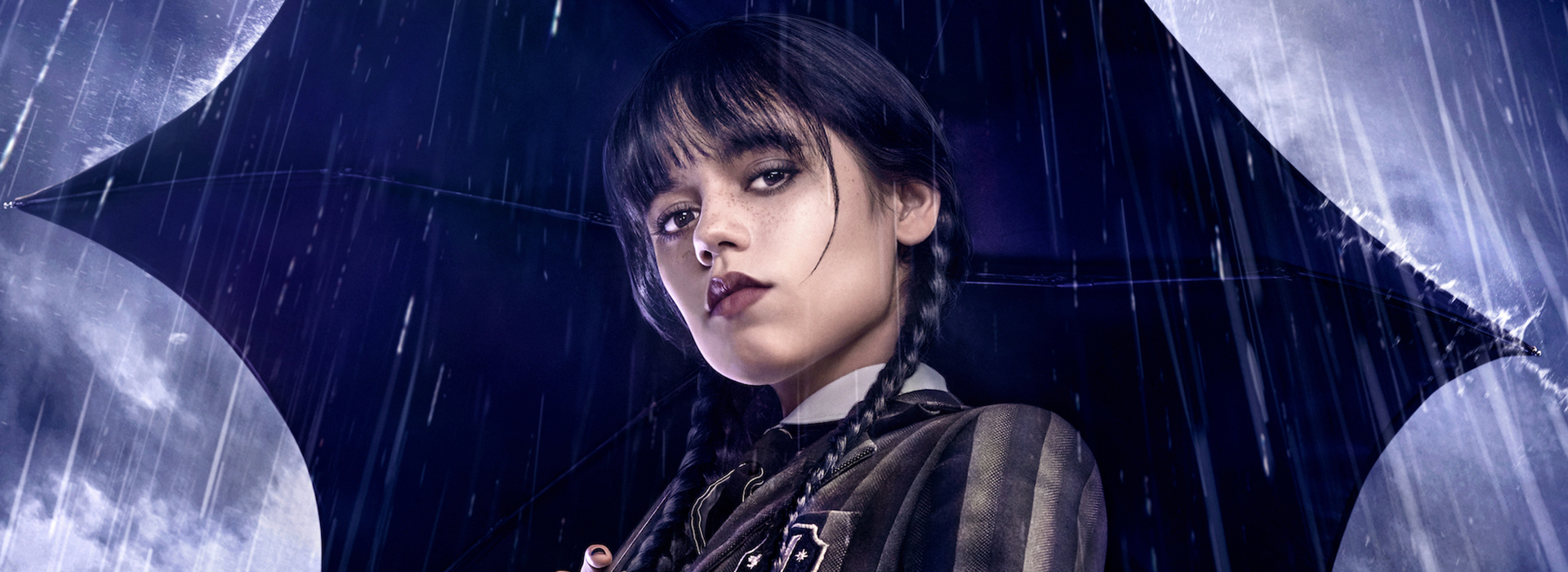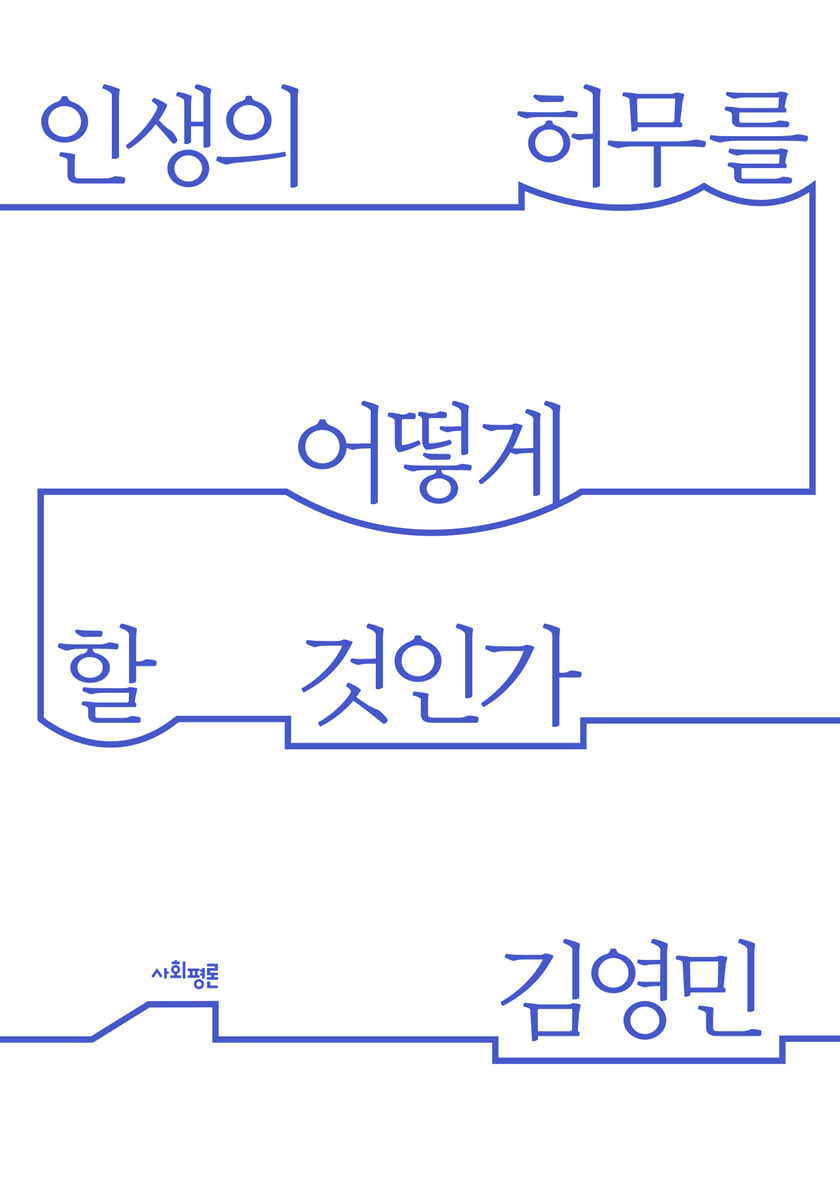
NoW
The woeful world of Wednesday
This week’s TV, movie, music and book recommendations
2022.12.09
Credit
Article. Yoon Haein, Im Sooyeon (CINE21 Reporter), Randy Suh (Music Writer), Kim Gyeoul (writer)
Design. Jeon Yurim
Photo Credit. Netflix
Wednesday (Netflix)
Yoon Haein: Wednesday is a spin-off TV series based on the character Wednesday Addams, the eldest daughter of the Addams Family, which was originally a newspaper cartoon that was later adapted for TV and film. Wednesday Addams, the protagonist of the new show Wednesday, is an incarnation of a character from a line in a classic Mother Goose nursery rhyme that reads, “Wednesday’s child is full of woe.” A teenage girl dressed, almost gothlike, in black and white from head to toe, and always looking bitter, she looks down on emotion as totally unnecessary and harbors a deep interest in darkness and death. She also possesses an uncontrollable psychic power to glimpse into the past and future when she touches things. The show takes place at Nevermore Academy, a one-of-a-kind known for nurturing so-called freaks with supernatural powers. Wednesday transfers into the school after getting herself expelled while avenging her brother Pugsley by attempting to kill his bullies. Just like a classic mystery novel, the show drops Wednesday, who is writing a novel herself, in the middle of a serial murder case, and follows her as she investigates a list of suspects to find the real culprit. At the same time, the show explores coming-of-age moments for the freaks of Nevermore, who might have mythical powers but still struggle to find themselves while navigating conflicts with parents, troubled romantic relationships and the ins and outs of friendship. Wednesday says she enjoys “being an island. A well-fortified one surrounded by sharks.” The story of how she progressively comes out of her shell across each episode is quite predictable but it’s an unmistakable joy to watch her grow. Every element comes together seamlessly to make a solid show: the energy of a teen drama, the fun fantasy clashed between mythological figures (like sirens and gorgon) and classic storybook creatures like vampires and werewolves, the spooky and kooky stylistic choices of Tim Burton—even a strong storyline surrounding the murder mystery.
Bones and All
Im Sooyeon (CINE21 reporter): If your survival essentially depended on doing what’s socially forbidden, how would you choose to live your life? This is the dilemma faced by a girl named Maren (Taylor Russell), who can only survive through cannibalism. When her long-hidden true nature resurfaces after long having been buried, her father, the only person in her life, leaves her. Now alone, Maren sets out on a journey to find the mother who abandoned her when she was little. On her journey, Maren encounters a boy named Lee (Timothée Chalamet) who shares many things in common with her. Bones and All is a road movie that takes a hard look at the universal feeling of loneliness and steers right into ethical questions arising from its subject matter. Humans were designed to crave intimacy, but we can never truly escape loneliness; it’s impossible to fully understand others. The movie captures the unique way in which Maren and Lee ultimately come together through the unavoidable overlap of love, fear, desire and violence. The movie grabbed the spotlight for bringing director Luca Guadagnino of Call Me by Your Name fame and Timothée Chalamet back together, but Taylor Russell, who pulls the entire movie along, and Mark Rylance in his role as elderly cannibal Sulley, also leave a deep impression long after after the curtain falls.
“New World” feat. Lang Lee (Hwang Puha)
Randy Suh (music writer): Often times I come across music made in Korea that’s about the homeland they live in and walk around every day. I feel hesitant speaking about it as someone who’s no longer walking around there with them. Still, I believe the song “New World” is worthy of sharing with a wide audience. Hwang Puha is a folk musician, a pastor and an activist who stands with people who are displaced as a result of urban development. Lang Lee is now a well-known name among listeners of Korean folk. Lee’s voice helps the listener share in Hwang’s view of the world through the beautifully written and carefully structured lyrics of “New World,” sharing thematic elements with Lee’s previous work. Lyrics like, “Saying I’m too proud, seeing me singing let’s die, supposing I was not trying hard,” and, “The world has put the label heresy on me,” are echoes of Lee’s older songs (“The Generation of Tribulation” and “There Is a Wolf,” respectively). People who criticize the modern Korean church have an image of Christianity as a materialistic religion that only exists so believers can be granted access to heaven, but the Bible specifically says that “your kingdom come.” This reflects the idea that, if believers practice God’s will here on Earth by helping others and living righteously, this land will become “your kingdom”—heaven. As with Hwang and Lee, there are people who write songs about poverty, weakness, pain and life. It’s them I’m writing about here: those who live with conviction for the land they’re grounded on and the songs they write.
What To Do About the Void of Life (Youngmin Kim)
Kim Gyeoul (writer): The end of the year is approaching, which always sets my heart aflutter for some reason. Festivities are in the air but the fleeting feeling of emptiness and the void causes me to look back on my life. Another year, coming to an end. Is this what life’s all about? Professor Youngmin Kim illustrates the aging process in his previous book, It’s Good to Think About Death in the Morning, as well:
“Will everything be clearer when I hit your age?”
“No.”
“Then do things become more chaotic?”
“It just moves faster.
Just like how muddy waters flow when there’s been heavy rain.”
We have to calm down and look at life as it rushes by uncontrollably over the years like a muddy stream, made as if it is a mixture of the clear and the chaotic. Just as he does in previous works, Kim uses his new book to ponder back and forth over an extensive collection of movies and books to ask readers to accept life as it is and not be cynical or sell their humanity, and simply acknowledge that there is death and void in the human experience. The author does not deceive or objectify himself, and as such gives consolation to his readers. The consolation isn’t a shallow one, but one of liberation coming from someone who can acknowledge the void for what it is.
Copyright © Weverse Magazine. All rights reserved.
Unauthorized reproduction and distribution prohibited.
Unauthorized reproduction and distribution prohibited.
